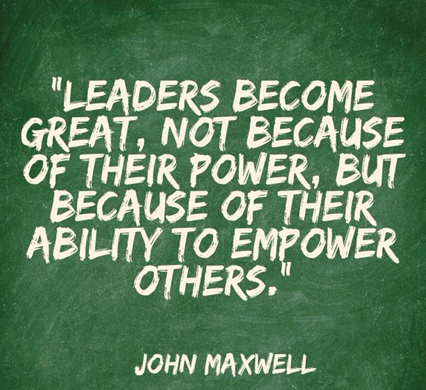Empowerment
Sometimes a crucial key to building your team and freeing up some time might not be about delegation but empowering staff to deal with a situation and build their confidence.
What's the difference between delegation and empowerment?
Delegation is something that is controlled by the person who manages the team whereas empowerment hands control over to the team members to make their own decisions. In addition it means more ideas regarding ways of working and doing things are introduced to the business.
Whilst a fully empowered team can take quite a long time to put in place, you can start small to begin with to encourage empowerment in your team and grow from there. Consider the following example:
" A customer comes in and just says they would like to speak to the pharmacist"
Does the customer always need to speak to a pharmacist or could a member of the team assist? A colleague can be empowered to reply, "how can we help you today?". They can then determine if they need to get a pharmacist or if they can deal with the query themselves.
This type of empowerment can lead to increased customer satisfaction too, as their enquiry can be dealt with quicker and possibly in a better way.
Empowering staff can be a valuable technique, but also comes with the same risks of delegation. It will still be a learning process and mistakes will more than likely occur at some point and need to be managed.

Steps to encourage empowerment
- Develop peoples skills through coaching and training - empowerment comes when employees have the feeling that they can handle their job and have enough knowledge to complete their tasks
- Display a positive and enthusiastic attitude - Nothing is more damaging to empowerment than negativity and passiveness. You can motivate through empowerment when your employees believe that you believe in them.
- Listen to employee suggestions and implement the ones that could work - Being heard and having your opinions shape the face of a business can be a very empowering experience for an employee. They know then that they are valued and important to the company as a whole.
- Avoid harsh reactions to failure, no one is perfect - If an employee makes a mistake, rather than reacting harshly, find the good in their actions and efforts and discuss what they could have done differently for next time. Coaching them to move forward will help.
- Set boundaries for empowerment - Although this might sound like a contradiction, your employees will need to be clear on areas where they can be autonomous and things they are not permitted to do.
Empowerment, just like delegation, is a tool that has a range of benefits to yourself, your customers and the business and one to be embrace effectively.
